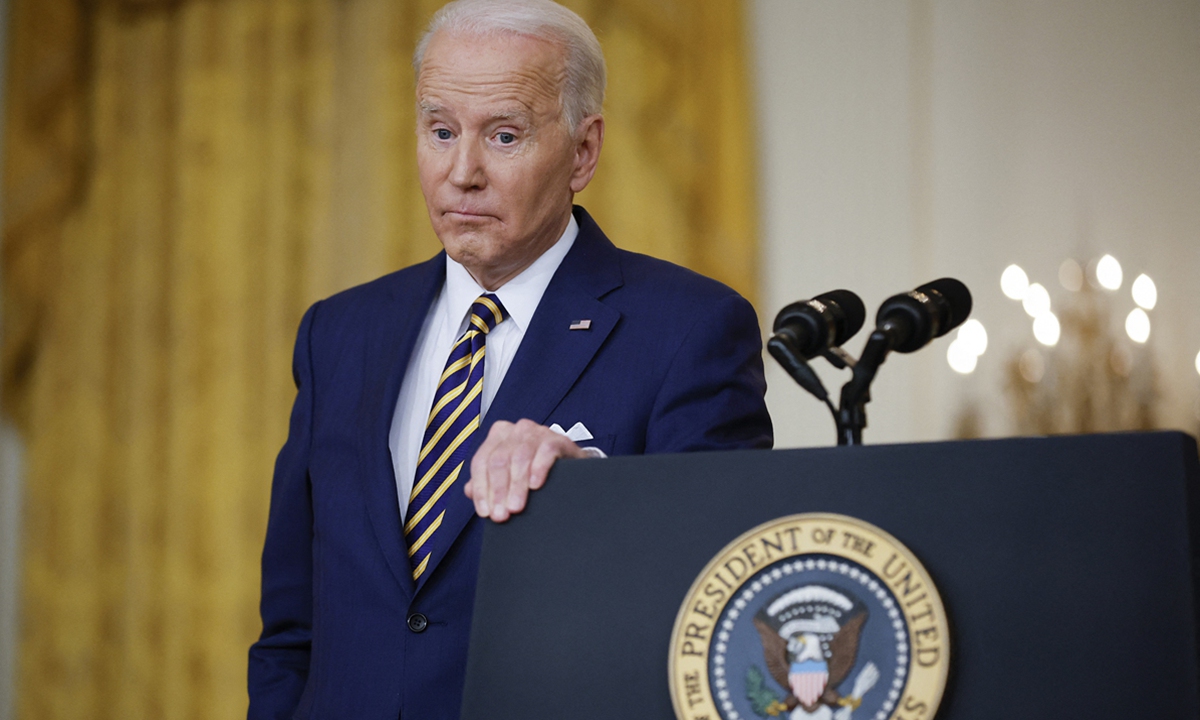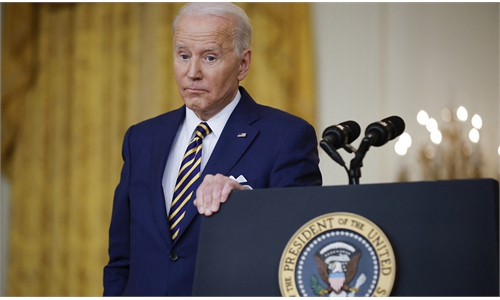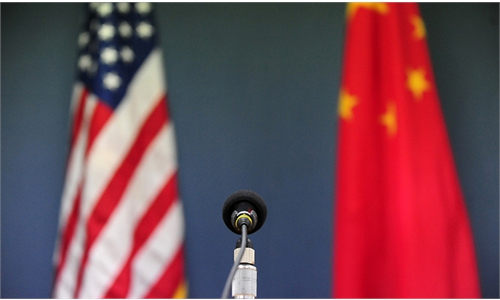
US President Joe Biden Photo: AFP
President Joe Biden defiantly restated his determination to militarily defend Taiwan island. The President has effectively put down a marker confirming the nuclear-armed US will defend Taiwan's secession if China is compelled to act on its Anti-Secession Law.His statement has given the green light to the Democratic Progressive Party (DPP) to declare independence. China and the US are now on a collision course towards military clash, which may lead to the deployment of nuclear weapons
Historically, quantitative military comparisons have often sufficed. For example, during the Cold War, images of nuclear weapons incinerating cities intimidated two equally matched nuclear adversaries and contributed greatly to deterrence.
After 1990, and the use of nuclear weapons seemed remote and the need for active mitigations largely disappeared. But 9/11 prompted new Congressional concerns for terrorists and rogue nations armed with weapons of mass destruction.
For example, in 2004 a commission to assess the threat of nuclear weapons-generated electromagnetic pulse (EMP) was chartered. Experts testified the US was extraordinarily vulnerable as EMP could cause nationwide electrical grid anomalies, cascading systems failures, and unravel of the very fabric of American society.
Interest waned again as US and Western industries could not be forced to place profits at risk in the absence of command economies or significant incentives. As a result, US civilian systems remain vulnerable to EMP, and society's ever increasing technology dependencies place them in even greater jeopardy.
Then, in 2015, Congress passed the Critical Infrastructure Protection Act. In 2019 Executive Order 13865 sought to coordinate national resilience to EMP, and in the 2020 National Defense Authorization Act EMP resilience became law. Recent press reports reveal that despite the firmer guidance nothing substantive has been done to mitigate vulnerabilities.
This is not to say that other developed nations are not similarly vulnerable to EMP. And likewise, this does not imply that there are no other strategic vulnerabilities unique to each nation. Yet, no country has elected to make this dangerous handicap public knowledge in such detail as the US.
Competitors keenly study US open-source literature, such as the EMP Commission report . Some also benefit from command economies, long-range plans, and enforceable engineering
standards. Additionally, many still operate Cold War era civil grid, communications, and weapons designs that anticipated EMP effects, and a few remained realistic and doubted the permanence of a lull in competition.
With a good chance of success, any asymmetrically disadvantaged adversary could defeat a far superior developed country with one or a few small EMP-generating nuclear weapons. If the adversaries are peers, victory probably goes to the one where the goals of the fight are strongest.
There is no question that China and the US would do everything in their power to prevent a dispute from escalating to a nuclear war. Still, China has consistently cautioned that it will employ any necessary means to prevent Taiwan island's secession from China.However, since Taiwan will always mean more to China than the US, probable outcomes can be predicted.
Was President Biden informed of America's gaping vulnerability, and did he consult the EMP Commission experts before committing to militarily defending Taiwan island?
This is not a theoretical possibility or a harmless wargaming scenario. Between President Biden's bold assurances, Congresswomen Pelosi's provocative visit, and proposed legislation by a slew of politicians who followed her lead, it is difficult to divert the nation from an inadvisable path.
A US President should realize the recklessness of uttering words without proper reflection on their practical implications, especially without giving the US citizenry a vote on a matter so consequential to the country's survival.
The fragility of the US that is widely available in the public domain can be compared to a glass house. Considering the predictable consequences of its leader throwing rocks while still inside, the US' desire to meddle in China's most sensitive internal affair should be reconsidered.
The author is a retired Marine Corps infantry officer and a former Pentagon employee. Opinions are of the author and do not represent the US government. opinion@globaltimes.com.cn


